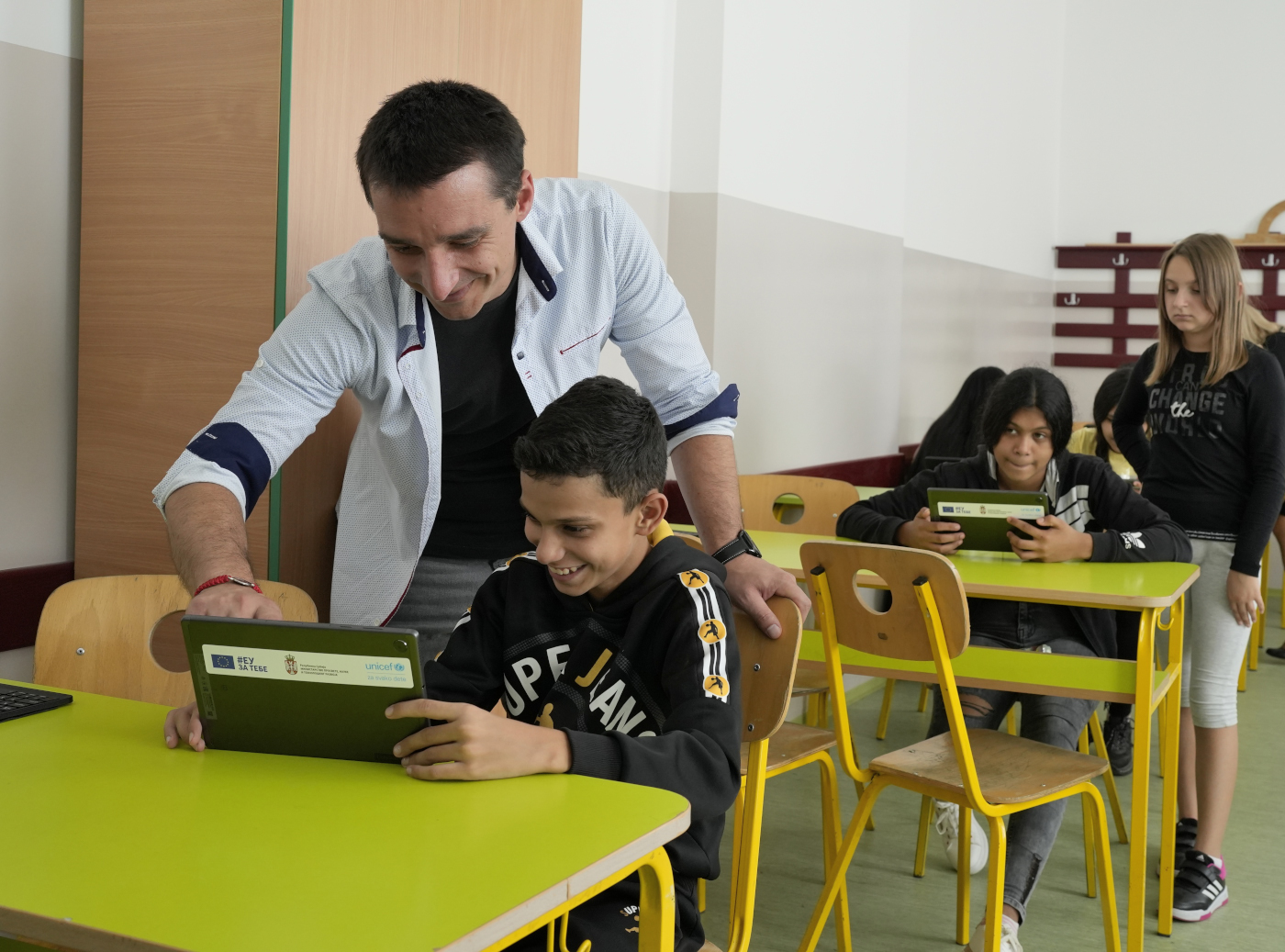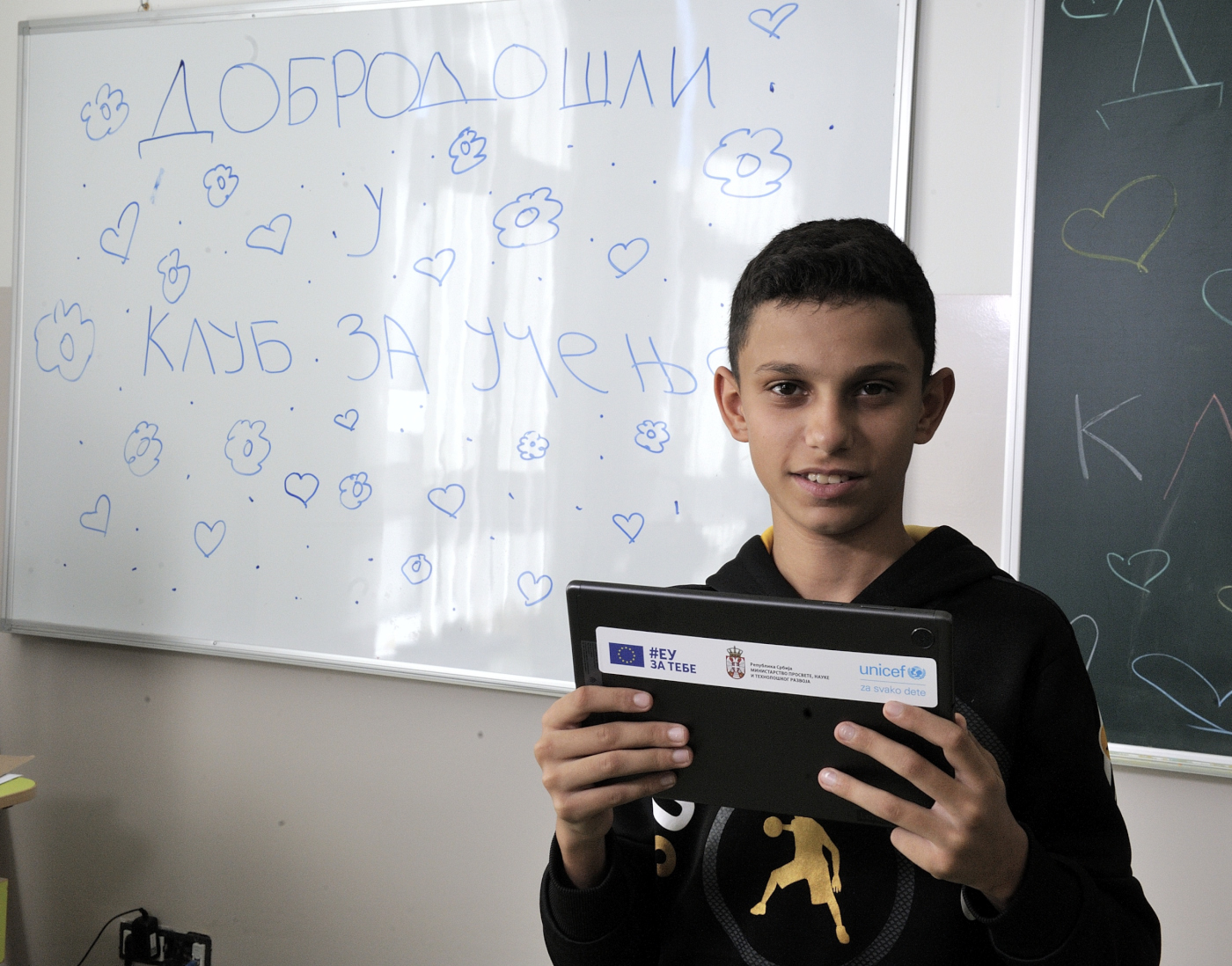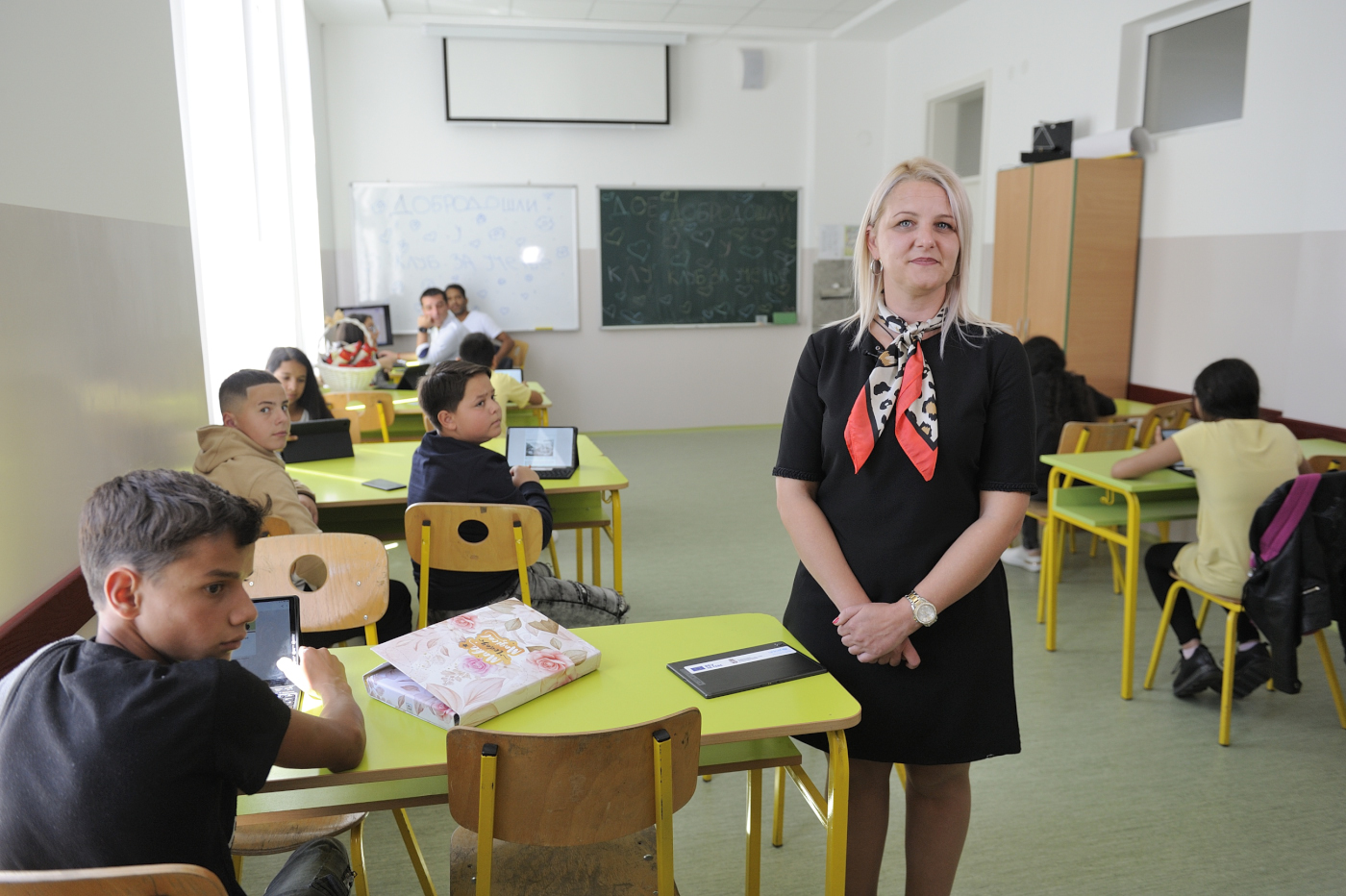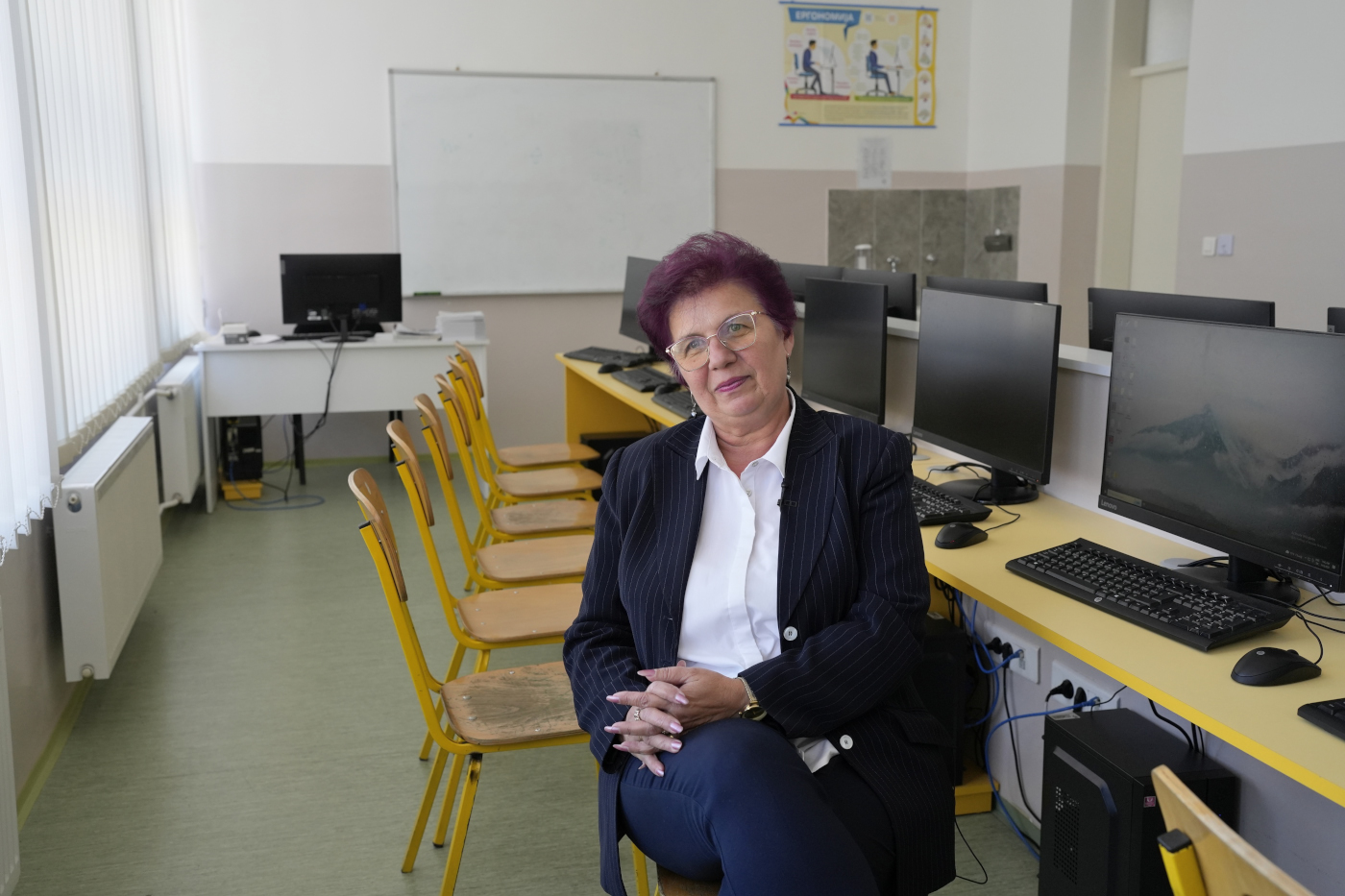Homework Clubs – We All Matter
Vlasotince, Serbia, September 2022Thanks to the Summer School I spent more time with my friends and became more confident. Last year, I was a student at the Summer School. And this year the teachers thought that I could also be a peer mentor and help my friends to improve (their grades) in computer science and maths," thirteen-year-old Ljubica, a seventh-grade student at the 8 October Primary School, says proudly.
“The Summer School helped us ease our students into the new school year. During various workshops we went over almost all the subjects from last year and helped them refresh their knowledge. We didn’t have a single workshop in one place. We worked in the chemistry classroom, mathematics classroom, in the kitchen. We also had a couple of workshops outside, at the local park. We also had a class in nature, we worked on programming. We brought out projectors, laptops, tablets, and we brought together nature and computer science,” explains Djordje Pejcic, mathematics teacher.

UNICEF Serbia/2022/Shubuckl
At the Summer School, which is organized near the end of the summer break, there are no usual classes. To keep students motivated to learn and attend regularly, teachers organize interesting workshops and students use computers and tablets. They realized that it’s easier for children to communicate with their friends and teachers through such group work.
At the Summer School, children are also preparing for the final exam and enrolling into secondary school. With the help of her teachers and peers, Andjela also managed to enrol in the first school on her wish list. Her mom is proud of the success she has managed to achieve thanks to the Summer School.
“At the Summer School she changed her habits, it just gave her something to aim for, to push on as a Roma child, to push on with her head held high, and she enrolled in the Secondary School of Medicine. I’m grateful primarily to the teachers and the principal. She had a lot of workshops and subjects, and told me they learned a lot by having fun,” says Milica Ilic, Andjela’s mom.
Within the Bridging Digital Divide in Serbia for the Most Vulnerable Children project, Homework Clubs and Digital Technology Libraries were established for children who don’t have a computer or need additional learning support. One of the attendees this year is twelve-year-old Viktor who needs help starting the seventh grade.
“I started coming to the Homework Club a week ago to improve my maths and Serbian language knowledge. We use the tablet to do tests. We spend time with our friends,” says Viktor. He and other students can sign out tablet computers during the school year to use to study in regular classes or at home.

UNICEF Serbia/2022/Shubuckl
“The Homework Club is an innovative form of work in our school. It’s intended for all students in our school, but the focus is on students from marginalized groups who need these types of classes, as well as learning and support the most. The focus is on remedial classes. However, there are also numerous workshops, preparation for final exams, training for digital competencies and tests,” explains Dragana Radosavljevic, Homework Club coordinator.
The Club is open all year. Students can apply on their own, or they can be nominated by teachers based on their grades.
"We keep records of the success of our students. At the start of the school year, we look at the grades from all subjects, we keep track of them quarterly to see if the grades have improved or deteriorated. If they deteriorate, the work with these students at the Homework Club is intensified,” says the teacher Djordje. Both he and his colleague Dragana agree that the students like this way of working.
“The children are coming to the Homework Club because the classes are very creative. They tell their friends about it, and then we get a large number of interested students who want to join the Homework Club and get this kind of support and classes,” explains Dragana.

UNICEF Serbia/2022/Shubuckl
The 8 October Primary School is currently attended by 734 students in 32 classes. Around 15 per cent of students are children from vulnerable social categories who need digital and psychosocial support during their education.
“This is a very good project because it focuses on children from vulnerable groups. This pandemic has also taught us a lot and it’s good that we’re participating in this project to remove those barriers, to bridge that gap, to give every child an equal chance to get an education,” says Svetlana Kocic, the school principal. She also recalls how difficult it was at the start of the pandemic to help every child who did not have digital equipment to attend remote classes. That gap was overcome with inclusion in this project.
“There is no student in this school who doesn’t have access to a laptop, tablet or PC now,” says Svetlana and adds that both students and teachers benefit from digitalization.
“The rollout of digitalization is at a really high level for all students, regardless of which category they belong to and how technologically equipped they are at home. Peer learning has also been raised to a higher level. The children were each other’s trainers, teachers, helpers, they exchanged and shared their knowledge and experiences. Teachers attended digital trainings. We took on projects about inclusion and the use of digitalization in classes,” explains Svetlana, and emphasizes that the provision of psychosocial support at the Summer School and the Homework Club is essential for children’s inclusion and success at school.

UNICEF Serbia/2022/Shubuckl
“It’s clear that they’re all equal, that they’re all the same, that everyone is provided with the same and equal opportunity. That’s what boosts their motivation for further learning and staying in the education system,” explains the principal.
The Bridging Digital Divide in Serbia for the Most Vulnerable Children project will complete in 2023. The ultimate goal is to make the education system more resilient to emergencies such as the one caused by the pandemic, and to make sure it can respond to the demands of students who need additional education support.



